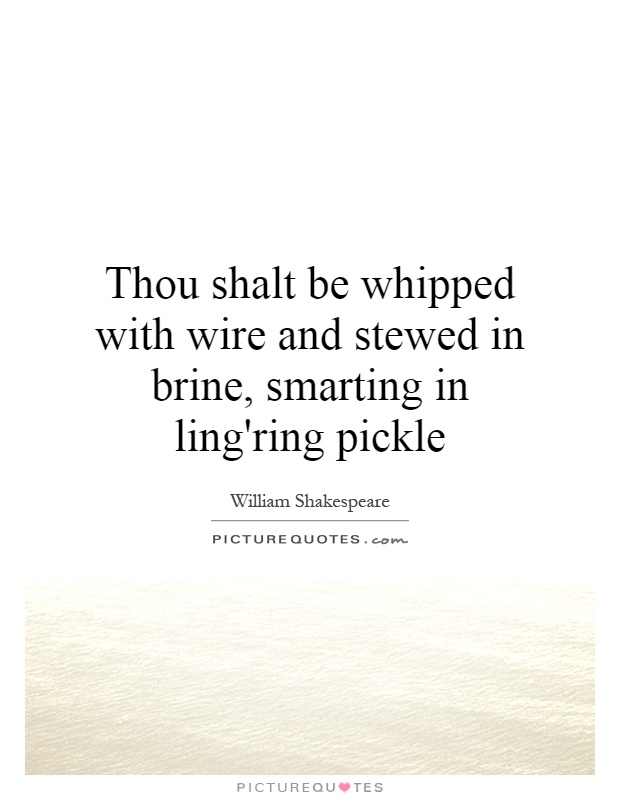Thou shalt be whipped with wire and stewed in brine, smarting in ling'ring pickle

Thou shalt be whipped with wire and stewed in brine, smarting in ling'ring pickle
The line "Thou shalt be whipped with wire and stewed in brine, smarting in ling'ring pickle" is a powerful and evocative example of the vivid and often violent imagery that William Shakespeare is known for in his works. This particular line comes from Act 1, Scene 2 of Shakespeare's play "The Tempest," spoken by the character Caliban.Caliban is a complex and often misunderstood character in "The Tempest." He is the son of the witch Sycorax and is described as a "savage and deformed slave" by the play's protagonist, Prospero. Caliban's speech in this scene is filled with bitterness and resentment towards Prospero, whom he sees as an oppressor and a tyrant. The imagery of being whipped with wire and stewed in brine is a graphic depiction of the suffering and torment that Caliban feels at the hands of his master.
The use of the word "pickle" in this context adds an additional layer of meaning to the line. In Shakespeare's time, pickling was a common method of preserving food, but it was also associated with punishment and torture. The idea of being "stewed in brine" suggests a slow and painful process of marination, as if Caliban's suffering is being prolonged and intensified.
The use of violent and visceral imagery in this line serves to highlight the themes of power, control, and oppression that run throughout "The Tempest." Caliban's speech is a powerful indictment of the injustices he has suffered at the hands of Prospero, and it challenges the audience to consider the consequences of colonialism and imperialism.
Overall, the line "Thou shalt be whipped with wire and stewed in brine, smarting in ling'ring pickle" is a striking example of Shakespeare's ability to use language to create vivid and memorable images. It captures the raw emotion and intensity of Caliban's anger and resentment, and it adds depth and complexity to his character in "The Tempest."












 Friendship Quotes
Friendship Quotes Love Quotes
Love Quotes Life Quotes
Life Quotes Funny Quotes
Funny Quotes Motivational Quotes
Motivational Quotes Inspirational Quotes
Inspirational Quotes